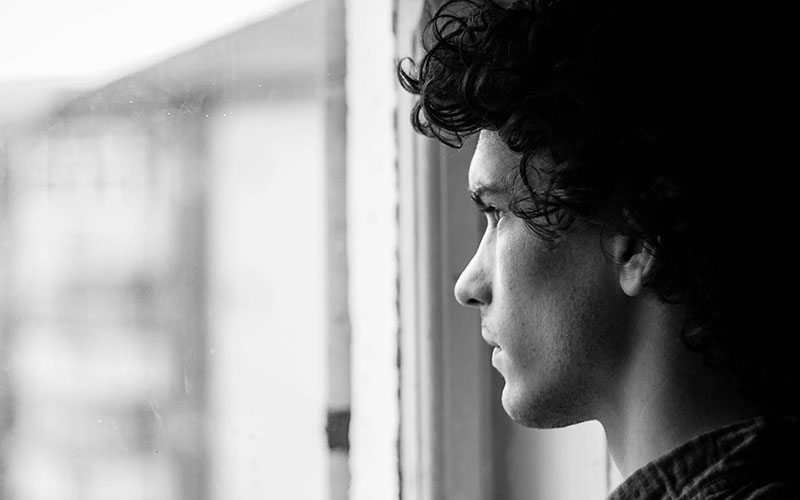In Australia, men are three times more likely to die by suicide than women¹.
It’s a tough subject to talk about, but its important to know that counselling isn’t the only option for help.
Speaking therapies like counselling are highly recommended for those experiencing thoughts of suicide, but chatting about feelings and issues isn’t typically a preferred option for men.
Our service statistics show that only 33.5% of adults who accessed counselling* with us from June 2020 to June 2021 were male.
While we can’t assume that all of these men had suicidal thoughts, this statistic suggests to us that men are less likely to seek help through counselling.
So if counselling is not up for consideration, what can men do if they’re experiencing suicidal thoughts?

“Evidence indicates men are far less likely to seek help for mental health conditions than women¹”.
While suicidal thoughts are a mental health concern, it’s important to distinguish that suicidal thoughts aren’t always the direct result of mental illness.
For men, some of the common issues that can eventually result in suicidal thoughts are loneliness, relationship/family conflict or separation, and stressors like financial or work-related issues.
Identifying the issue/s that lead to suicidal thoughts is essential for finding the right support and coping strategies.
In a research project conducted by Black Dog Institute², men’s self-help prevention strategies for depression were studied, whereby they discovered men:
- taking steps to stay in good physical health
- doing enjoyable activities
- taking action to solve or mitigate the impact of problems that were affecting them
- implementing both prevention and reactive strategies (to pick themselves up during difficult times) in their regular routine
While these prevention strategies were focused on depression, these could also be used and considered for dealing with issues that lead to suicidal thoughts, considering their close connection.
For example, if loneliness is a key factor, one might consider actions to reduce loneliness – for example, making more time for social activities, joining a social group of interest (e.g. sport or hobbies), or spending more time with loved ones and pets.
Another means of support, outside of self-help strategies and counselling, is to confide in a mate.
Just mentioning that you’ve had a crappy day or that you’re going through a rough time is enough to show a mate that you’re in need of support.
This support might be as simple as going on walks or runs together, playing games together online, or sitting down together to watch the footy (COVID permitting, of course!).
Supportive social networks are a key element in the mental wellbeing of all people, and so having that support from a mate can make a big difference.
You’re not alone. There is always a way forward.
If you’re feeling suicidal, don’t ignore it.
Suicidal thoughts aren’t a life sentence. There is always hope and opportunity for a brighter future, even when it feels like there isn’t.
Whether you confide in a mate, try self-help strategies, or even consider counselling, make sure you do something to get yourself feeling better. You are worth it.
Other options for professional help:
Find additional information and help from Beyond Blue:
Looking out for yourself Looking out for your mates Take the Mind Quiz
Liz Gellel | Communications Coordinator
*Family & Relationship Counselling or Family Law Counselling
Sources:
¹Beyond Blue Statistics
²Doing what comes naturally: Positive self-help strategies used by men to prevent depression and suicide
10 Surprising Facts About Men's Mental Health